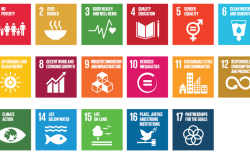
The papers in this special issue provide accounts of the politics and knowledge that shaped the Sustainable Development Goals (SDGs). The open and transparent processes in the Open Working Group (OWG) and Post‐2015 agenda consultations challenged the MDG paradigm and set more transformative and ambitious goals. But across many goals, there was slippage in ambition when targets and indicators were selected. In some cases, this is due to genuine difficulty in defining a suitable indicator. In other cases, there is clearly a contestation about the agenda, and indicators are used to reorient or pervert the meaning of the goal. The accounts of the negotiations– concerning inequality, sustainable agriculture, access to justice, education, environment – show how the selection of an indicator is purportedly a technical matter but is highly political, though obscured behind the veil of an objective and technical choice. The papers also highlight how the increasing role of big data and other non‐traditional sources of data is altering data production, dissemination and use, and fundamentally altering the epistemology of information and knowledge. This raises questions about ‘data for whom and for what’ – fundamental issues concerning the power of data to shape knowledge, the democratic governance of SDG indicators and of knowledge for development overall.
Policy Implications
- The research findings show that the SDG experience was an important innovation in more participatory and transparent goal setting, but they also call attention to the pitfalls of ‘governance by indicators’. The HLPF and the UN SC should re‐examine the most problematic indicators at the 2020 review.
- The UN SC should ensure that the IAEG‐SDGs is open to comment and proposals for change, while civil society actors and others should continue to invest in scrutinizing the selection of indicators. Criteria for indicator selection should be based more on their accurately reflecting SDG norms and less on data availability. The international community should invest more in developing Tier II and III indicators.
- Most national statistical offices (NSOs) cannot implement the SDG indicator framework without adequate resources. National governments and international donors should give higher priority to supporting these needs.
- Big data can make a contribution to the SDGs but their development needs to be carefully managed to ensure they promote inclusive and participatory development. To ensure this, UN should play a more proactive role in governing the use of big data, for example through accreditation.
- Monitoring the implementation of SDGs should be based on a broad qualitative analysis focused on the goals, not on the indicator framework alone.